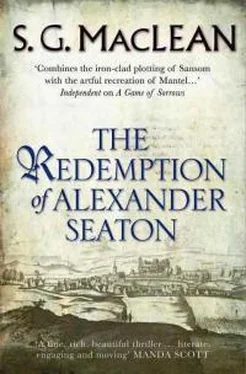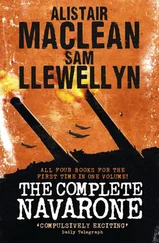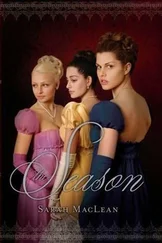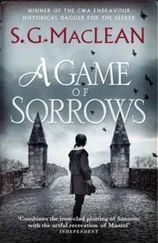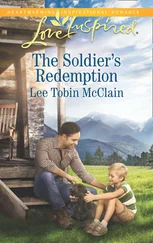I pressed on, past the Seatoun and along the links to the shore of Boyndie Bay. I had often taken my scholars here, but the place was deserted today. I sat down on a large flat rock beneath a dune and looked out towards the horizon, remembering. I remembered my own schooldays, and the joy when the master had announced at the end of the morning lesson, if we had repeated our lesson to his satisfaction, that we would go to Boyndie Bay. I had not walked then, but run, run the whole way to the beach. We all ran, laughing and shouting, like the wind. And always, at the head of us all, was Archie. Archibald Hay, Master of Delgatie and heir to the castle and lands thereof. Archie, companion of my boyhood, the friend of my life. Closer than a brother and loved beyond measure. I would have given every grain of sand on the shore, every day of life that lay before me, to have Archie sitting beside me now.
The escapades of the Master of Hay were a legend in the North long before his schooldays were over. Our schoolfellows were too far in awe of him to demur at any scheme he might have, but I knew Archie from the depths of his heart, and I – I alone – could talk him out of his wild schemes. His parents knew this, and often enough before me, child that I was, thanked God for our friendship, for Archie was all their hope, the light of their life, and even their Katharine walked in his shadow.
Katharine, Archie’s younger sister, the quiet, watchful little girl, who had grown into a quiet, watchful young woman. She had taken the time to try to understand the world, whereas her brother had simply launched himself upon it. So delicate she was, and slender and pale, like the willow; I do not know when I first realised that I loved her. Sometime, it must have been, between leaving my boyhood games behind me and entering upon the world of men.
Over the years, when Archie and I had studied at the King’s College in Old Aberdeen, his parents had come often to their house in the Castlegate of the New Town, and they always took Katharine with them. At first, in the nature of boys, I paid her little heed, but as time got on and Archie quested after ever-wilder escapades, I began to notice her. There came a time when I began to speak to her of things other than all the commonplaces of our shared childhood, of her brother, of Banff, of Delgatie, of the characters who peopled her sphere and mine. We began to talk of the state of the kingdom, of the confusions in religion, of the world and its beauties and its perils. Her knowledge of languages, philosophy, poetry and history far outstripped her brother’s, and it was not long before I would call at the Hays’ town house whether Archie were with me or no. Her parents were indulgent, amused even. They gave little thought to Katharine, save to love her. Archie was all their hopes, and Katharine’s life was her own. To learn that Katharine felt for me as I did for her had been the most wondrous moment I had known.
But I had no Katharine now, and there was no Archie beside me, nor ever would be. There would be no storming of the tolbooth, no mockery of the outrage of the dignitaries of burgh and Kirk. I must look to my own reserves to help Charles and hope that I would not be found wanting. I rose from my makeshift seat and began to make back towards the burgh, as the clouds rolled in from the west.
At the schoolhouse I collected the provisions from the back pantry where I had left them. I was not greatly surprised to find the broth warmed and the basket a good deal heavier now. I looked at Mistress Youngson, searching for some new tone of address, because words of kindness were so out of use between us, but they would not come. ‘His mother was a good Christian woman,’ she said. ‘And I was always fond of the boy.’
I did not slow my pace to speak to anyone as I passed by the marketplace and the old place of the Carmelites until I came to the tolbooth at the foot of Strait Path. The guard at the bottom doorway let me pass without comment or enquiry – it would be little mystery to any in the town what business I had there today. I seldom set foot in here unless it was to pay some new tax the crown or burgh had discovered a need for. This not being a day of taxation, the place was near silent, immovable. Another guard, having asked my business, opened for me the small doorway off to the right, giving onto the wardhouse and the stairway that would take me up to the jail itself. I had been through that door only once before in my life, when the burgh council had seen fit to instruct Gilbert Grant to take his charges on a visit of the tolbooth, that the sight of the fate of wrongdoers might discourage them from any such path in future. We boys from the town were used to all manner of smells, of damp, food, coal, peat, beasts and bodily wastes. We were used to the stink of the tanner’s yard and the soap-maker, of cheap tallow candles and sometimes wax, of yeast and malt brewing, of fish gut, seal blubber and seaweed. But the tolbooth was different: few of my schoolfellows could have known such a stench as greeted us on ascending the stairs to the burgh prison. All the bodily odours we had ever encountered were compressed and magnified within those thick, stone, near-windowless walls. The damp and the cold and the vermin vied for precedence in a stinking cavern of God-forsaken despair. I, and many others, had had nightmares for weeks after about what we had seen there, and I had vowed that I would never again set foot in such a place.
I ascended the narrow and twisting stone stairs warily, for the light was very poor. Two-thirds of the way up, I heard footsteps begin to descend towards me. I stood still a moment and soon, emerging from the near-darkness, was the form of Baillie Buchan. ‘Mr Seaton. I had thought to see you here sooner.’ If the ambiguity of his words pleased him, he gave no sign of it.
‘And I would have been here sooner, had the door not been barred to me. On your instructions.’
‘The prohibition applied to more than yourself, but you would do well to think further on it. These are not fit matters for you to meddle in.’
‘It is not meddling to give succour to a friend, or to wish to see justice done.’
‘I pray God that you might, Mr Seaton, and that soon. The magistrates have committed the music schoolmaster to an assize before the sheriff, to stand trial for the murder of Mr Patrick Davidson.’
Already. My throat went dry. My words can scarcely have been audible. ‘In the name of God, man.’
‘We all do our work in the name of God.’
I shook my head slowly. ‘This is no work of God you do here. On what grounds do you charge him?’
Buchan eyed me clearly. ‘I do not charge him, Mr Seaton. It is the whole body of magistrates sitting in council that charges him. He is, by common repute – and you will not deny this for you and Jaffray spoke of it only last night – he is by common repute infatuated with the girl Arbuthnott. She, as all the town knows, has wandered like a wanton through half the country after her father’s apprentice. Charles Thom gives no account of his movements last night after he left the inn, none at least that have an ounce of truth in them. His bed was never slept in at the apothecary’s – Edward Arbuthnott’s wife will vouch for that – and do not think I did not mark the question of his praying. Do you think me a hypocrite, that I cannot tell when one is void of faith? Your friend is lost, Mr Seaton, whatever the assize might say of him. Mind that you are not!’ With this he continued down past me, his last words repeating in my head.
The guard on the door at the top of the stair searched my basket. ‘There are no weapons there.’ He disregarded my words and continued with his search until it was complete. His hand closed on the small package of dried fruit Mistress Youngson had slipped into the basket. ‘Leave it, or the baillie shall hear of it and you’ll be in here yourself soon enough,’ I warned him. He returned the package grudgingly and stood aside for me to stoop through the narrow doorway to the cells.
Читать дальше
